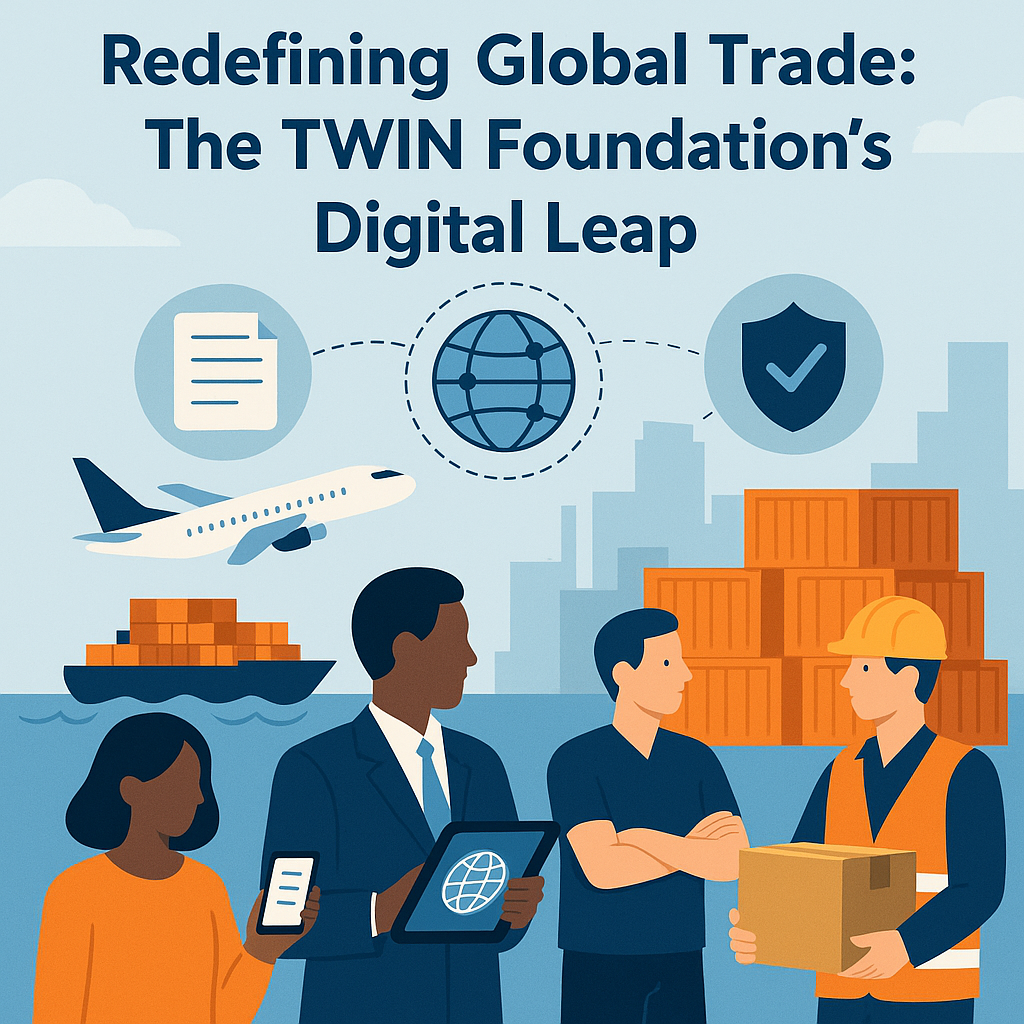In May 2025, the Trade Worldwide Information Network (TWIN) Foundation was launched at the AfCFTA Digital Trade Forum in Lusaka, Zambia. Backed by global organizations including the World Economic Forum, Tony Blair Institute, TradeMark Africa, and the IOTA Foundation, TWIN represents a new vision for global trade: digital, inclusive, and interoperable.
Today, international trade is still largely paper-based, with each transaction often requiring dozens of documents shared among numerous parties. This creates delays, increases costs, and limits access for smaller players. TWIN seeks to change this by offering a decentralized, digital infrastructure that streamlines trade and improves transparency.
Estimates suggest that digital trade systems like TWIN could reduce trade costs by up to 25%, potentially unlocking $10 trillion in additional global trade over the next decade. More importantly, this kind of transformation can empower small and medium enterprises (SMEs), especially in regions like Africa, where barriers to cross-border trade remain high (World Economic Forum, 2025).
TWIN’s design prioritizes openness and user control. It is built on distributed ledger technology (DLT), which enables secure, tamper-proof sharing of data without relying on a single authority. Businesses decide what data to share, with whom, and under what conditions an approach that respects sovereignty while building trust between trade partners.
Real-world pilots have already shown what this future could look like. In Kenya, the Trade Logistics Information Pipeline (TLIP) helped reduce customs processing times from weeks to days, and slashed export costs for flower producers. In the UK, a similar system tracked hundreds of poultry consignments during cross-border trials, easing regulatory checks and improving delivery times.
The foundation plans to scale the technology globally, supported by an open-source model and a neutral nonprofit governance body based in Switzerland. This setup ensures the infrastructure remains accessible, inclusive, and adaptable for diverse markets and users.
By moving away from slow, paper-heavy processes and towards a more transparent and efficient digital system, TWIN is helping reimagine global trade. For small businesses, especially in emerging economies, it offers a chance to participate more fully in international markets and benefit from fairer, faster, and greener trade practices.
Reference:
World Economic Forum. (2025, June 7). TWIN Foundation: A digital public infrastructure to reimagine global trade. https://www.weforum.org/stories/2025/06/twin-foundation-global-trade/


